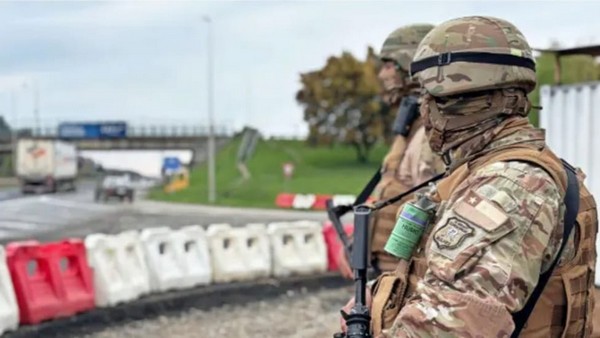A series of milestones, whose relevance is also defined by their national impact, will shape the agenda of the southern macrozone in the coming weeks and months. Among them is the completion of one thousand days under the state of emergency—designated as an emergency zone—on February 10, in effect since May 17, 2022, in the La Araucanía region and the provinces of Arauco and Biobío.
Additionally, by the end of January, the final report with proposals to address the crisis in the southern macrozone, prepared by the Commission for Peace and Understanding, will be delivered.
Furthermore, four cases involving emblematic acts of violence are at different procedural stages. The investigation against 17 community members for the kidnapping of three prison guards from Angol prison...
Meanwhile, the case concerning the eight crimes allegedly committed in November 2022 by Pelentaro Llaitul, one of the four sons of Arauco Malleco Coordinator leader Héctor Llaitul, will begin trial preparations on February 7. The defendant faces potential sentences totaling over 70 years in prison.
In parallel, the case involving the attack on the Grollmus family in August 2022 has now led to 12 arrests, and the prosecution will file charges in the coming months to bring them to trial. Similarly, progress is being made in the investigation into the murder of three police officers in Cañete on April 27, 2024, with three of the four alleged participants in the deadly ambush already detained.
Maintaining the state of emergency
The Vice President of the Chamber of Deputies, Eric Aedo, agrees that these are the key milestones for the first half of the year. Regarding the state of emergency, he believes that despite its prolonged application, "it must continue, and there should be no de-escalation, as it has been what has helped reduce violence levels."
According to the lawmaker, "the continuity of this measure can only be evaluated once the Mapuche Lafkenche Resistance and the Arauco Malleco Coordinator are dismantled." He warns that "although their activity has decreased in intensity, they continue to operate and carry out attacks linked to timber theft and drug trafficking. Until this is under control, the emergency zone cannot be lifted."
In the same vein, the president of the La Araucanía Multiguild Association, Patricio Santibáñez, argues that "the conditions that justified the state of emergency remain, and it is logical for it to last until attacks are reduced to zero."
Former Undersecretary of the Interior and researcher at the University of San Sebastián’s Center for Studies on Organized Crime, Felipe Harboe, believes that "the time has come to evaluate the operational plan, reinforce what works, and innovate in areas where results have fallen short."
"Abandoning maximalist positions"
Regarding the work of the Peace Commission, Aedo states that "if the proposals follow the logic of the pension agreement, and each sector abandons maximalist positions, there is a strong chance of reaching solutions."
Harboe adds that the commission’s report "will have an impact, and we hope the agreements translate into concrete measures."
Alongside securing convictions in landmark judicial cases, Santibáñez emphasizes that "it is crucial to impose penalties for all violent acts, even minor ones, to prevent impunity."
Meanwhile, Harboe notes that "a very important signal would be for the ongoing cases to proceed swiftly and result in prompt convictions."
Source:El Mercurio







Comentarios (0)
No hay comentarios aún. ¡Sé el primero en comentar!
Deja un comentario